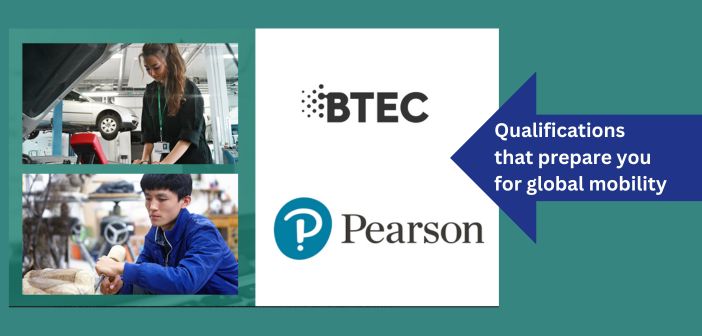
“In collaboration with industry, academia, and the Sector Skills Council of UK (SSC), Business Technology and Education Council (BTEC) qualifications were developed by Pearson. Millions of learners earn these qualifications yearly at various learning levels,” said Mr. Baljit Singh, Deputy General Manager – Workforce Skills, Pearson India.
To learn more about BTEC qualifications from Pearson, the various levels and subjects under BTEC, and Pearson’s contribution and efforts in skill development and vocational education in India, we conversed with Mr. Baljit Singh, Deputy General Manager—Workforce Skills, Pearson India.
Below are a few excerpts from our conversation. You can watch the full video on our YouTube channel.
Pearson’s partnership with NSDCI to promote BTEC qualifications in India
While discussing Pearson’s partnerships with NSDCI, Mr. Baljit Singh said, “BTEC qualifications are constantly developing a clear path for the young learners to start their education in India and then find a clear progression to foreign universities. Pearson BTEC qualifications are aligned with the global mobility goal of the National Skill Development Corporation International (NSDCI) and Government of India’s vision. We want to utilize their network of training providers and training centres to see how we can support them while delivering globally recognized qualifications.”
Pearson BTEC qualifications at various levels
These qualifications are available from Level 1 to Level 7. These are the levels are set by the UK’s Office of Qualifications and Regulations. Here, Level 1 corresponds to the 9th and 10th grades respectively. A student who wishes to enrol in Level 3 qualifications must first complete their 10th grade. Learners must pass their 12th standard to enrol in level 4 or level 5.

Subjects under Pearson BTEC qualifications
Pearson BTEC qualifications include subjects like:
- Business Management
- Engineering
- Media
- Art and Design
- Health and Social Care
- Digital Technology
- Cloud Computing
- IT
- Hospitality….any many more
While describing the mode of learning, Mr. Baljit Singh elaborated, “Learners attend the sessions in person. However, some of these qualifications are available in a blended model that includes Computing and Business Management. The learners get to complete 50 percent of the qualification, which is about eight units over two years, in the online mode.
The importance of integrating vocational education with mainstream education
“NEP 2020 has given us all a clear picture that we will have to include vocational education in our mainstream education. We must prepare the workforce for a smooth transition into work to improve employability quotients. The more we adapt to market and industry changes, the better-educated and better-prepared the workforce will be for people who exit mainstream education and enter the workforce,” emphasised Mr. Baljit Singh.
Also read: Teacher education programs for upskilling and career advancement https://nationalskillsnetwork.in/teacher-education-programs-for-upskilling-and-career-advancement/
“Due to the great work done by NSDCI and others in promoting vocational education, I believe NEP 2020 to be a clear indicator. Earlier, in India we mostly offered a 12-week skill – training programs, but gradually we’ve started Bachelor of Vocation programs in many trades. Slowly, all these young learners are also enrolling in various international skills and training programs to achieve global mobility,” he added.













